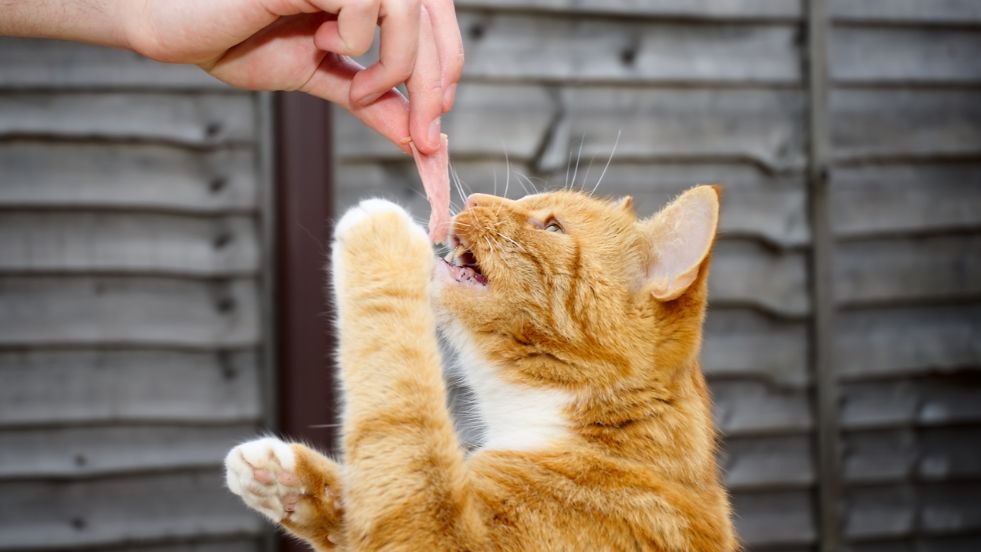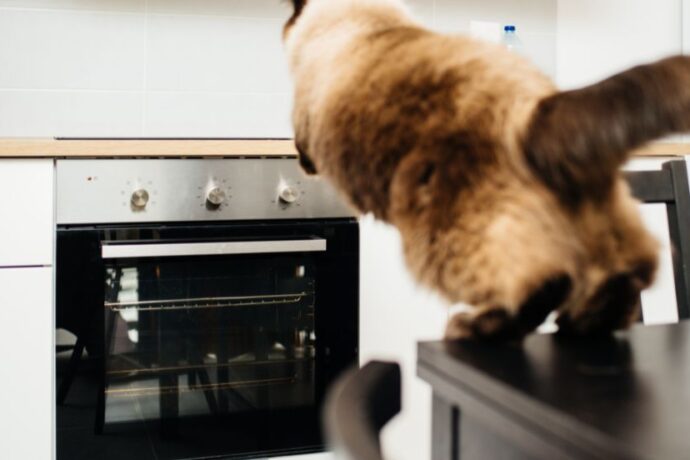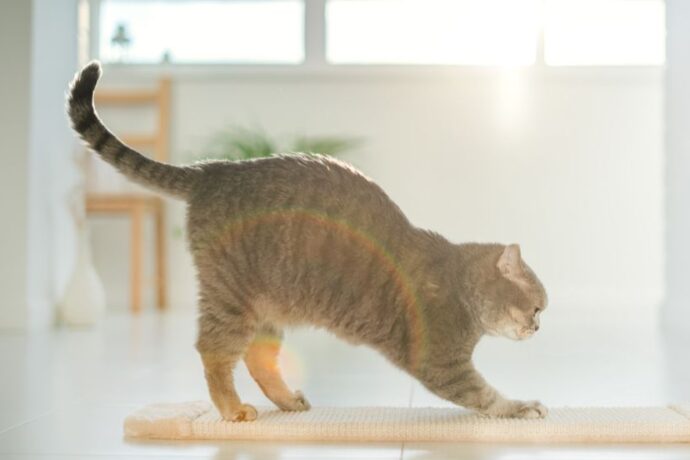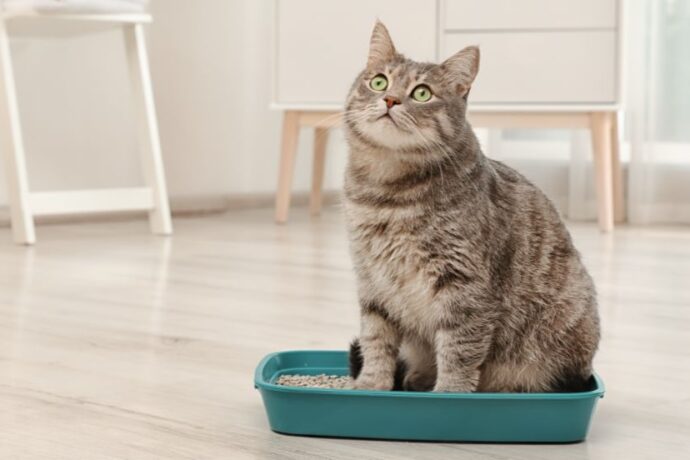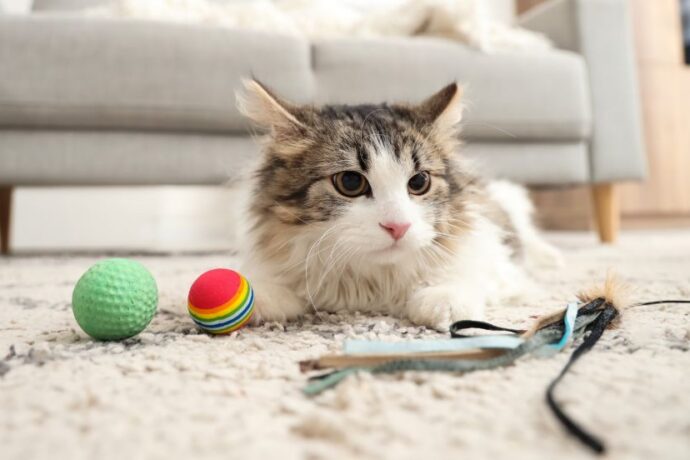Cats are known for being picky eaters, but even the fussiest feline won’t turn down a delicious homemade treat. Store-bought options often contain preservatives, fillers, and artificial ingredients, which may not always support your cat’s health. By making treats at home, you can ensure that every bite is wholesome, safe, and tailored to your kitty’s needs.
This guide shares 10 simple and healthy cat treat recipes—from crunchy bites to meaty chews and even frozen goodies for hot days. Each recipe includes preparation details, nutrition facts, step-by-step instructions, and the health benefits your furry companion will enjoy.
The Purr-fect 10: Homemade Cat Treat Recipes
1. Tuna Crunch Bites
Quick Details
| Prep Time | Cook Time | Yield |
| 10 mins | 15 mins | 30 bites |
Nutritional Facts (per bite)
| Calories | Protein | Fat | Omega-3 |
| 18 | 2g | 0.6g | High |
How to Prepare
- Preheat oven to 350°F (175°C).
- Blend 1 can of tuna (in water), 1 egg, and ½ cup of oat flour.
- Roll into small balls and flatten slightly.
- Place on a baking tray and bake for 15 minutes.
Health Benefits
- Tuna provides high-quality protein and omega-3 fatty acids for a shiny coat.
- Eggs add extra protein and vitamins.
- Oats support gentle digestion.
2. Chicken & Catnip Cookies
Quick Details
| Prep Time | Cook Time | Yield |
| 15 mins | 20 mins | 25 cookies |
Nutritional Facts (per bite)
| Calories | Protein | Fat | Fiber |
| 22 | 2.5g | 0.5g | 0.5g |
How to Prepare
- Cook and shred 1 chicken breast.
- Mix with ½ cup whole wheat flour, 1 egg, and 1 tsp dried catnip.
- Roll out and cut into small shapes.
- Bake at 350°F (175°C) for 20 minutes.
Health Benefits
- Chicken builds lean muscle.
- Catnip stimulates playful behavior.
- Homemade crunch helps clean teeth.
3. Salmon & Oat Balls
Quick Details
| Prep Time | Cook Time | Yield |
| 10 mins | 15 mins | 20 balls |
Nutritional Facts (per bite)
| Calories | Protein | Fat | Omega-3 |
| 25 | 3g | 0.8g | High |
How to Prepare
- Combine 1 can of salmon, ½ cup of oats, and 1 egg.
- Form small balls and place on a baking sheet.
- Bake at 350°F (175°C) for 15 minutes.
Health Benefits
- Salmon supports joint health and a glossy coat.
- Oats provide slow-release energy.
- Protein-rich snack ideal for active cats.
4. Sardine Treat Squares
Quick Details
| Prep Time | Cook Time | Yield |
| 10 mins | 20 mins | 20 squares |
Nutritional Facts (per bite)
| Calories | Protein | Fat | Omega-3 |
| 28 | 3g | 1g | High |
How to Prepare
- Mash 1 tin of sardines (in water) with ½ cup of oat flour.
- Spread mixture on a lined baking tray.
- Bake at 350°F (175°C) for 20 minutes.
- Cut into small squares.
Health Benefits
- Sardines are rich in omega-3s and calcium.
- Supports brain and heart health.
- Crunchy texture aids oral hygiene.
5. Turkey & Pumpkin Bites
Quick Details
| Prep Time | Cook Time | Yield |
| 15 mins | 25 mins | 25 bites |
Nutritional Facts (per bite)
| Calories | Protein | Fat | Fiber |
| 20 | 2g | 0.7g | 1g |
How to Prepare
- Mix 1 cup ground turkey, ¼ cup pumpkin puree, and 1 egg.
- Roll into small bites.
- Bake at 350°F (175°C) for 25 minutes.
Health Benefits
- Turkey is a lean protein source.
- Pumpkin aids digestion and stool regularity.
- Low-fat option for weight management.
6. Cheesy Cat Biscuits
Quick Details
| Prep Time | Cook Time | Yield |
| 10 mins | 18 mins | 30 biscuits |
Nutritional Facts (per bite)
| Calories | Protein | Fat | Calcium |
| 24 | 1.5g | 1g | Good |
How to Prepare
- Mix ½ cup shredded cheddar cheese with 1 cup whole wheat flour.
- Add 1 egg and 2 tbsp water to form a dough.
- Roll out and cut into small shapes.
- Bake at 350°F (175°C) for 18 minutes.
Health Benefits
- Cheese adds calcium for bone health.
- Protein helps maintain lean body mass.
- A tasty, occasional indulgence.
7. Beef Jerky Strips
Quick Details
| Prep Time | Cook Time | Yield |
| 15 mins | 2 hrs | 20 strips |
Nutritional Facts (per bite)
| Calories | Protein | Fat | Fiber |
| 40 | 5g | 1.5g | 0g |
How to Prepare
- Slice lean beef into thin strips.
- Bake at 200°F (95°C) for 2 hours until dry.
- Cool before serving.
Health Benefits
- High-protein chew supports muscles.
- Low-carb treat suitable for carnivores.
- Natural jerky satisfies the chewing instinct.
8. Frozen Tuna Pops
Quick Details
| Prep Time | Freeze Time | Yield |
| 5 mins | 2 hrs | 12 pops |
Nutritional Facts (per bite)
| Calories | Protein | Fat | Hydration |
| 15 | 1.5g | 0.5g | High |
How to Prepare
- Blend 1 can of tuna with ½ cup of water.
- Pour into ice cube trays.
- Freeze for 2–3 hours.
Health Benefits
- Keeps cats cool in warm weather.
- Adds hydration.
- Protein-packed frozen snack.
9. Liver & Oat Biscuits
Quick Details
| Prep Time | Cook Time | Yield |
| 15 mins | 25 mins | 25 biscuits |
Nutritional Facts (per bite)
| Calories | Protein | Fat | Iron |
| 30 | 3.5g | 1g | High |
How to Prepare
- Blend ½ cup chicken liver with 1 cup oats.
- Add 1 egg to bind.
- Drop spoonfuls on a baking tray.
- Bake at 350°F (175°C) for 25 minutes.
Health Benefits
- Liver is rich in iron and vitamin A.
- Oats add dietary fiber.
- Boosts energy and blood health.
10. Shrimp & Rice Balls
Quick Details
| Prep Time | Cook Time | Yield |
| 10 mins | 20 mins | 20 balls |
Nutritional Facts (per bite)
| Calories | Protein | Fat | Omega-3 |
| 22 | 2.5g | 0.5g | Moderate |
How to Prepare
- Chop ½ cup cooked shrimp finely.
- Mix with ½ cup cooked rice and 1 egg.
- Form into small balls.
- Bake at 350°F (175°C) for 20 minutes.
Health Benefits
- Shrimp provides lean protein and omega-3s.
- Rice supports gentle digestion.
- Balanced treat for sensitive stomachs.
Why Homemade Cat Treats Are the Cat’s Meow (Science-Backed)
According to the American Veterinary Medical Association (AVMA) and feline nutrition experts, cats are obligate carnivores, meaning they thrive on high-protein, meat-based diets (1)(2)(3). Homemade treats give you control over ingredients, ensuring no hidden sugars, excess carbs, or harmful additives sneak into your cat’s snacks.
Studies also show that cats benefit from omega-3 fatty acids (found in fish) for coat health, probiotics (from yogurt) for digestion, and lean proteins (chicken, turkey, beef) for muscle strength(4). Making treats at home helps you combine these nutrients in fun, tasty ways.
FAQs About Homemade Cat Treats
1. How often should I give my cat treats?
A. Treats should make up no more than 10% of your cat’s daily calories. Balance with their regular food.
2. Can kittens eat homemade treats?
A. Yes, but in smaller portions. Always consult your vet and avoid heavy spices or ingredients not suitable for young cats.
3. How long do homemade cat treats last?
A. Most baked treats last up to 5 days in an airtight container, a week in the fridge, or 2–3 months in the freezer.
Conclusion:
Homemade cat treats are an easy way to show love while keeping your feline’s diet clean and nutritious. From meaty bites to frozen snacks, these recipes offer a variety of flavors and textures that will keep your cat excited. By preparing treats at home, you’re not only bonding with your pet but also ensuring they get safe, wholesome, and beneficial rewards.
References:
1. Cornell Feline Health Center
2. Cats are carnivores, so they should eat like one
3. Cats and Carbohydrates: The Carnivore Fantasy
4. The effect of dietary long-chain omega-3 fatty acid supplementation

